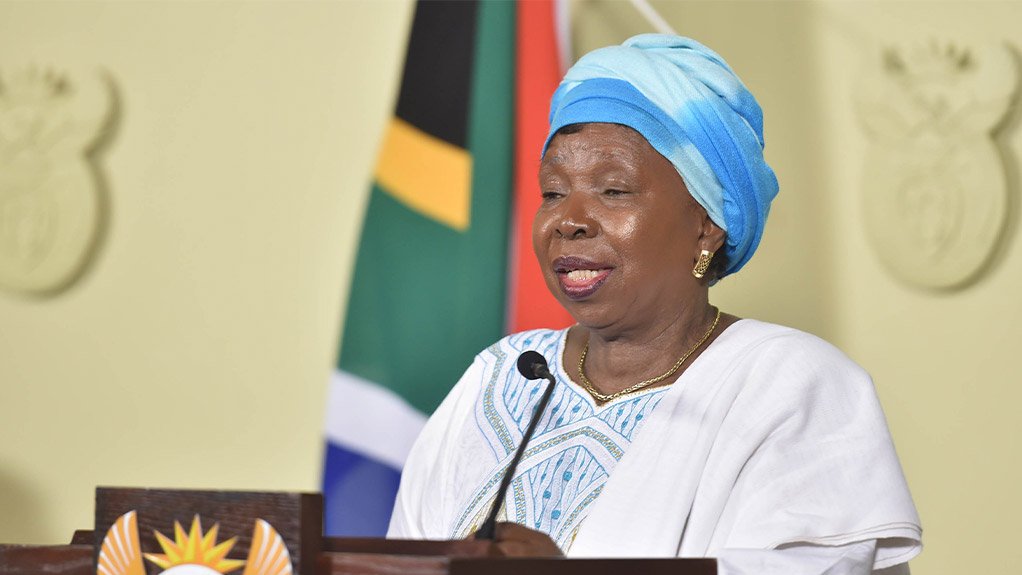- 82100_final_amended_regulations.pdf2.45 MB
The South African government announced the easing of lockdown restrictions for parts of the logistics, retail, services, mining and energy sectors on April 16, as the country entered the second phase of what was initially meant to be a 21-day nationwide lockdown in response to the Covid-19 pandemic, but which had since been extended to the end of April.
There was no immediate easing of restrictions placed on the transport and sale of alcohol or cigarettes, however, and take-away food outlets would also remain closed, along with other so-called nonessential retailers. The lockdown was also formally extended until 23:59 on April 30 for schools and partial care facilities.
Nevertheless, Cooperative Governance and Traditional Affairs Minister Nkosazana Dlamini-Zuma unveiled several changes to the lockdown regulations in line with President Cyril Ramaphosa’s April 9 statement that government would be implementing risk-adjusted measures to enable a phased recovery of the economy, by allowing the return to operation of certain sectors under strictly controlled conditions.
Dlamini-Zuma announced that lockdown regulations had been amended to allow for the movement of cargo from ports to their intended destinations, as well as cargo destined for export.
The move was designed to ease congestion at the ports so as not to hinder the flow of essential goods, as well as to clear, ahead of the end of the lockdown, any backlogs that had developed at the ports.
Hardware components required for the purpose of essential repairs and the provision of essential services, including water and electricity, could also be sold.
“Trades necessary for the rendering of emergency repair work, including plumbers, electricians, locksmiths, glaziers, roof repair work and emergency automobile repairs for persons rendering essential services and for public transport vehicles are permitted to operate in terms of these regulations,” Dlamini-Zuma said.
Likewise, call centres necessary to provide health, safety, social support, government and financial services, debt restructuring for consumers or retailers, and access to short-term insurance policies were also entitled to operate, together with information and communication technology service providers supporting institutions engaged in delivering essential services.
Mineral Resources and Energy Minister Gwede Mantashe also announced that, oil refineries were permitted to operate at full capacity, so as to avoid shortages of fuel. Besides refineries, restrictions were also lifted on smelters, plants and furnaces.
ALL MINING NOW AN ESSENTIAL SERVICE
Collieries supplying coal to Eskom had been allowed to continue throughout the lockdown, but Mantashe announced that other mining operations could also resume, albeit at 50% capacity levels for the remaining period of the lockdown.
Production capacity would be increased thereafter at rates determined by Mantashe, who indicated that he did not expect mines to return to full production levels until mid-May or beyond.
He also stressed that several conditions would need to be met before mining activity resumed, including:
- The implementation of rigorous screening and testing programmes when employees returned to work.
- The provision of quarantine facilities for employees who tested positive for Covid-19.
- The submission of data collected during the screening and testing programme to relevant authorities.
- And the implementation of arrangements to transport South African mineworkers from their homes to their respective areas of operation.
Mineworkers from neighbouring countries would be recalled only at the end of lockdown periods in their respective countries.
“All mining are considered essential services but must be operated in line with the reduced operation rules already alluded to,” Dlamini-Zuma added.
FURTHER EASING?
Trade, Industry and Competition Minister Ebrahim Patel stressed that various restrictions had already been eased since the first set of regulations were published on March 25 and that further easing was likely in the days and weeks ahead.
“What we will be looking at is, out of the range of economic activities, which ones should gradually be re-introduced over the period ahead. Until we are able to make those decisions – based on health considerations, economic considerations, security considerations – it is not possible to comment on those and indicate where we are with the review.”
Patel stressed that, for the duration of the lockdown, any easing of restrictions on business activity would be assessed on a risk-adjusted basis, with input from medical professionals as well as the security authorities.
“We are seeking to avoid a sudden, significant rush of people back to work at the end of the lockdown and we are also seeking to be influenced by the health data and the work of scientists and professionals, who are advising us on this issue.”
Patel also underlined the importance of clearing any port backlogs, which, if they persisted, could hinder the import of essential goods required by frontline medical practitioners. “We want to make sure that, when it comes to bringing critical goods into the country, we are able to do so quickly.”
Patel also revealed that the Companies and Intellectual Property Commission would be issuing revised essential-services certificates to those businesses that had been issued with certificates outlining that the end date of the lockdown was midnight on April 16.
EMAIL THIS ARTICLE SAVE THIS ARTICLE ARTICLE ENQUIRY
To subscribe email subscriptions@creamermedia.co.za or click here
To advertise email advertising@creamermedia.co.za or click here











